
Winds of Change: Coffee Shipped by Sail
Coffee Shipped by Sail
At Origin, we’re committed to achieving Net Zero emissions well before 2050, and have implemented environmental targets to support us in reaching this goal. As part of this, we are proud to be partnering with BELCO and their shipping partners, TOWT on their ‘Fresh Coffee Clean Ocean’ initiative.
This project is designed to address the carbon emissions associated with traditional coffee transportation, and for the first time ever, we will be shipping our coffee by sail across the Atlantic Ocean.
Why Ship Coffee by Sail?
Maritime transport is a significant contributor to global pollution. Its emissions account for 3% of global CO2 emissions and a staggering 20% of worldwide sulphur dioxide and nitrogen dioxide. These pollutants pose a serious threat to public health, contributing to the development of cardiovascular and respiratory diseases.
Beyond this, maritime emissions exacerbate global warming, disrupting ecosystems worldwide. Coffee growers, for instance, face prolonged droughts and more frequent hurricanes, impacting yields and forcing some families to migrate or change the crops they grow. Additionally, the noise pollution generated by maritime transport, exceeding nightclub decibel limits, disrupts the sonar systems of whales, dolphins and other sea mammals, leading to disorientation and displacement.
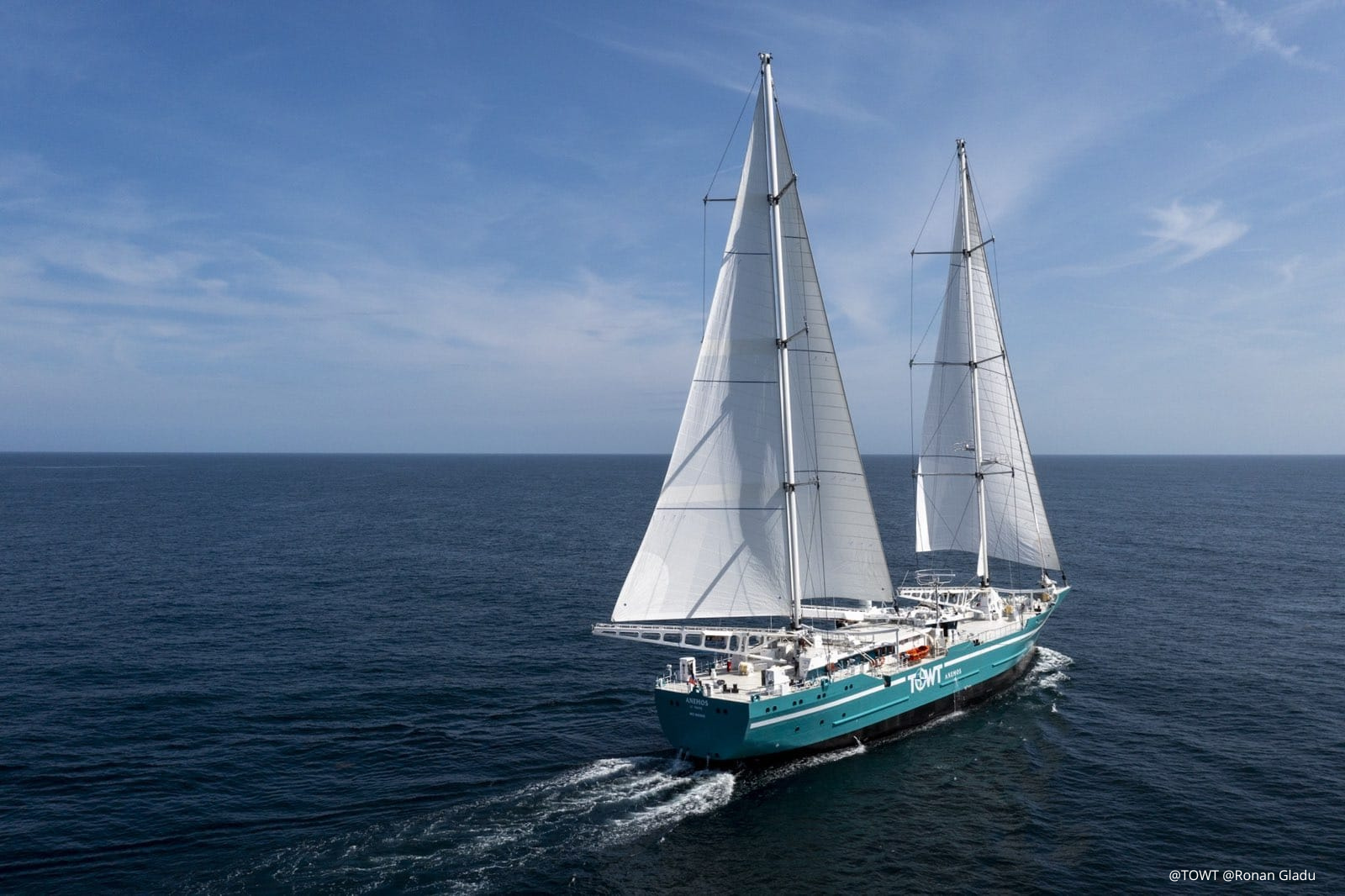
What it means to us
As a business, we’re always looking for innovative ways to reduce the impact of our products, and by supporting initiatives like Fresh Coffee, Clean Ocean, we are able to offer our community high-quality, consciously sourced speciality coffee with a lower environmental footprint. We currently understand sea freight emissions to be the fourth largest emissions aspect at Origin, after coffee, food and drink, and machinery, and as we look towards the future, our ambition is to expand on the volume of coffee that is transported in low-carbon ways, such as this.
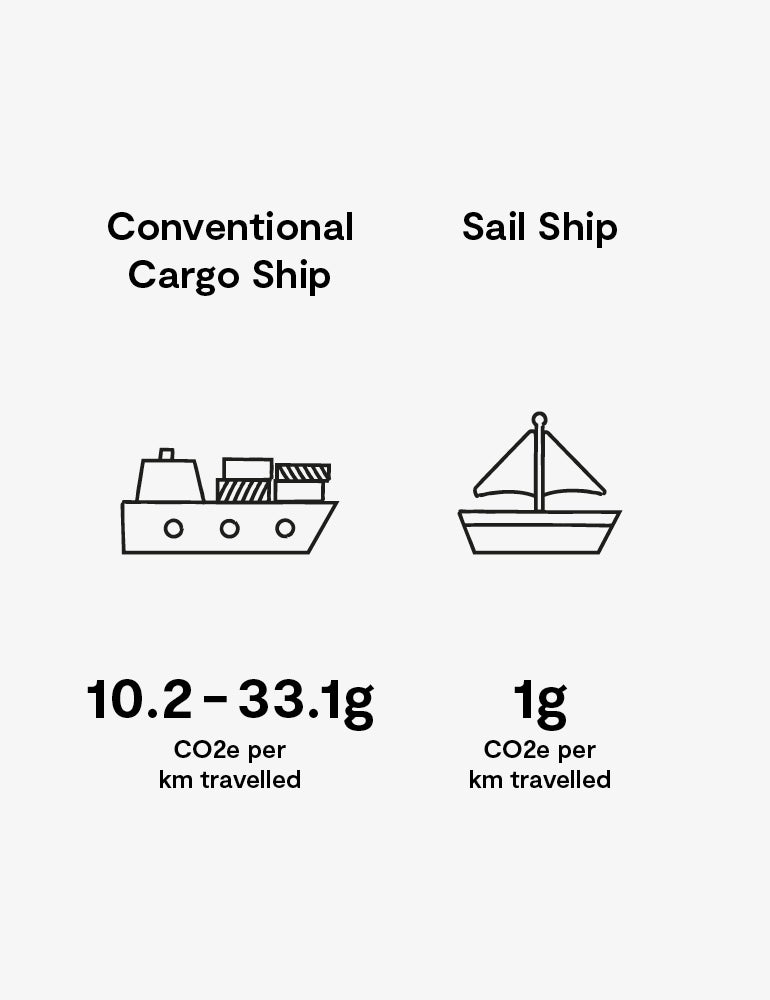
“The revival of cargo transport under sail ship offers so much opportunity, and we are thrilled to be adopting wind propulsion as part of our carbon reduction strategy.”
The Environmental Benefits
Sail cargo can achieve between a 95%-84% reduction in CO2 emissions compared to average container carriers. Diesel container carriers emit between 10.2 and 33.1gCO2/t.km*, while sail cargo emits only 1 gCO2e/t.km**. This means, our sail ship coffee could reduce CO2 emissions by as much as 3.9 tonnes CO2e per container compared to average diesel powered sea freight.
‘Transporting by sail ship is nothing new, but we are striving to take it to the next level thanks to 2024 state-of-the-art technologies; it is efficient, fast, and drastically decarbonised. Where shipping which uses fossil fuels is struggling, decarbonised alternatives are the next big thing...this is only the beginning.’
TransOceanic Wind Transport (TOWT), shipping partners for the ‘Clean Coffee Clean Ocean’ initiative.
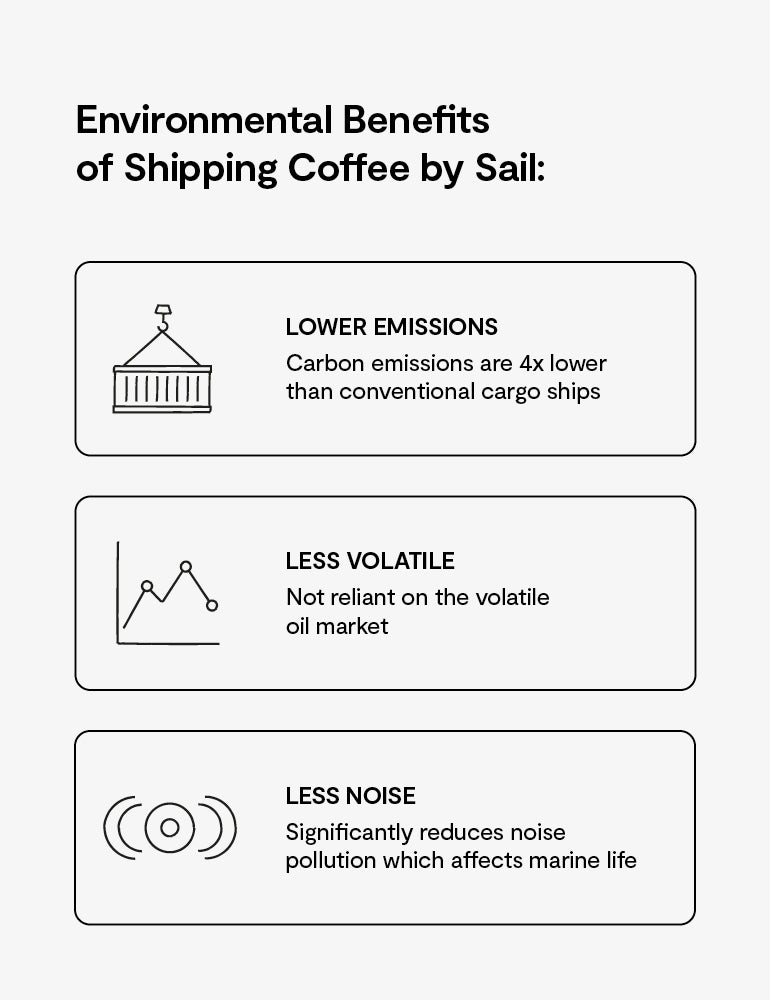
The Journey
The Sail Ship (built in Concarneau, France), departs from the port of Le Havre, where it embarks on a transatlantic voyage over to Brazil. Here, the Belco crew are on the ground ready to load the holds. The coffee travels on pallets in ventilated holds with controlled temperatures, maintained at 20°C. The ship then sails back to Le Havre, and the coffee ventures onlast leg of the journey, down to our roastery in Porthleven. The direct route divides transit time in half when comparedto traditional cargo ship transportation.
“This project marks our first Scope 3 sustainability initiative that is progressing along the supply chain. We’re excited to be starting with 1 container this year, with the goal of shipping significantly more coffee via sailboat in the near future—potentially all the way to Cornwall.”
The Coffee
Launching early 2025, our Sail Ship coffee is carefully produced, harvested and dried in the Mogiana region of Brazil. Showcasing the unique terroir of this area, this naturally processed blend comes from brothers Fernando and Felipe Menezes Ribeiro, who have curated a selection of the highest quality varietals from their farm. The result is a sweet and balanced profile, with creamy and moreish notes of milk chocolate and Brazil nut in the final cup.
Sign up to our newsletter to be the first to hear when it lands.
--
*Diesel container carrier emissions estimations taken from emissions calculations handbook published by the Ministry of Ecological and Inclusive Transition in France. https://www.towt.eu/wp-content/uploads/2023/05/Info-GES_Guide-methodo.pdf (pgs 63-65)
**Sail container emissions estimations provided by TOWT a la Voile and validated by the state owned and operated French Environment and Energy Management Agency https://www.towt.eu/une-navigation-decarbonee/
You may also like
See all articles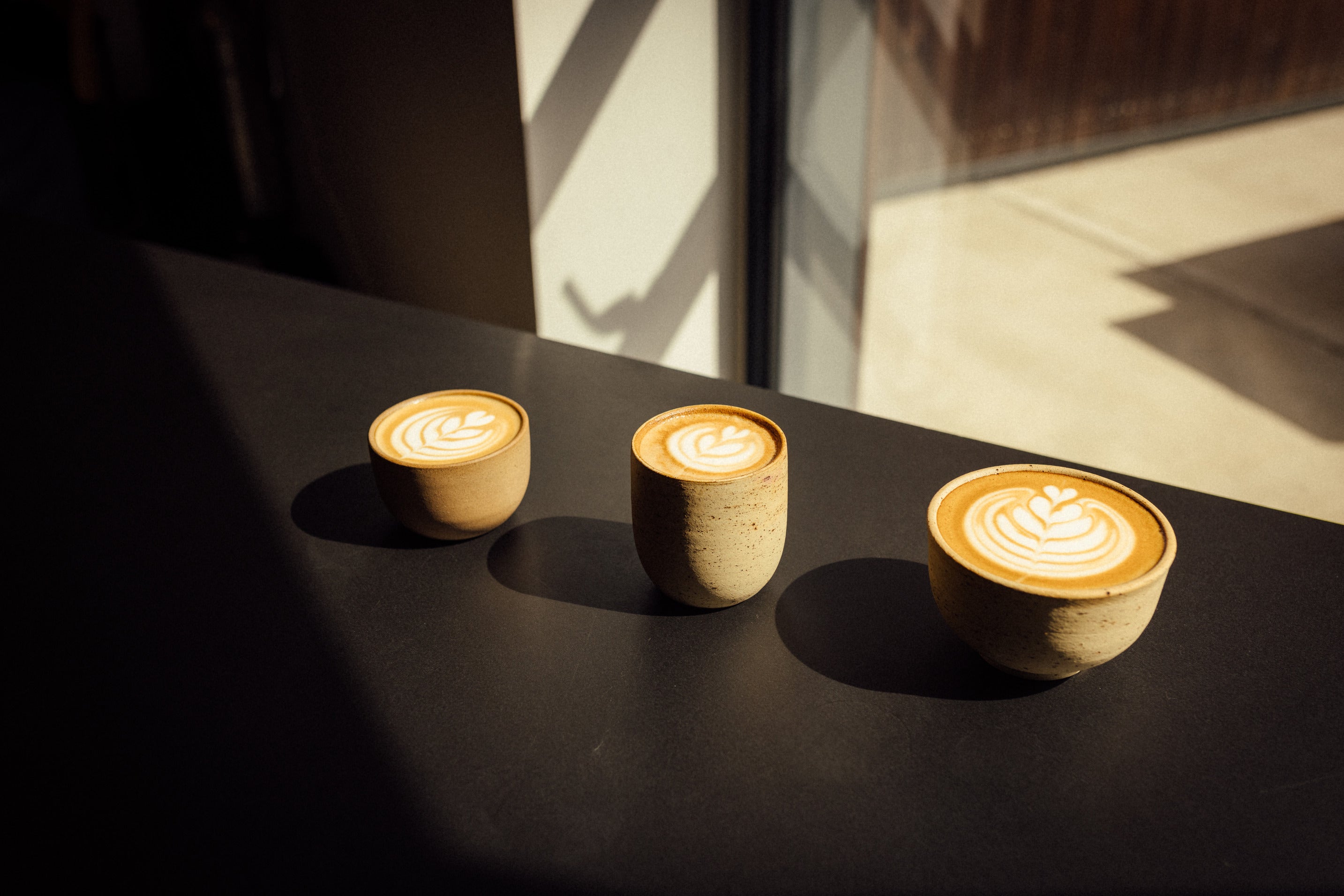
Mar 19, 2025
How to Make a Cappuccino
An easy step-by-step guide and recipe to making the perfect cappuccino at home—with or without a coffee machine. Read more
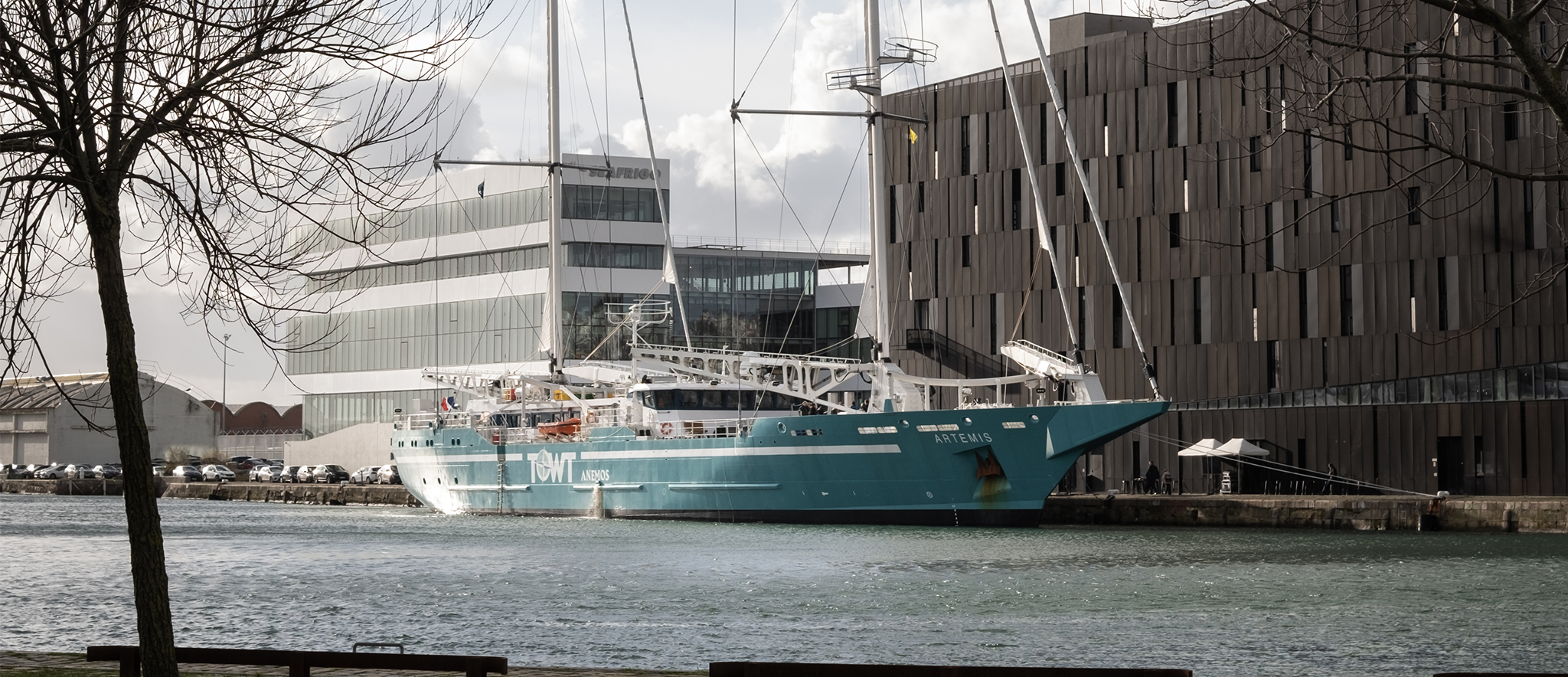
Mar 17, 2025
Women in Coffee: Céline Jaffredou
From cultivating and processing at source, to crafting the perfect espresso in your local cafe, women play vital roles at every stage of the coffee... Read more
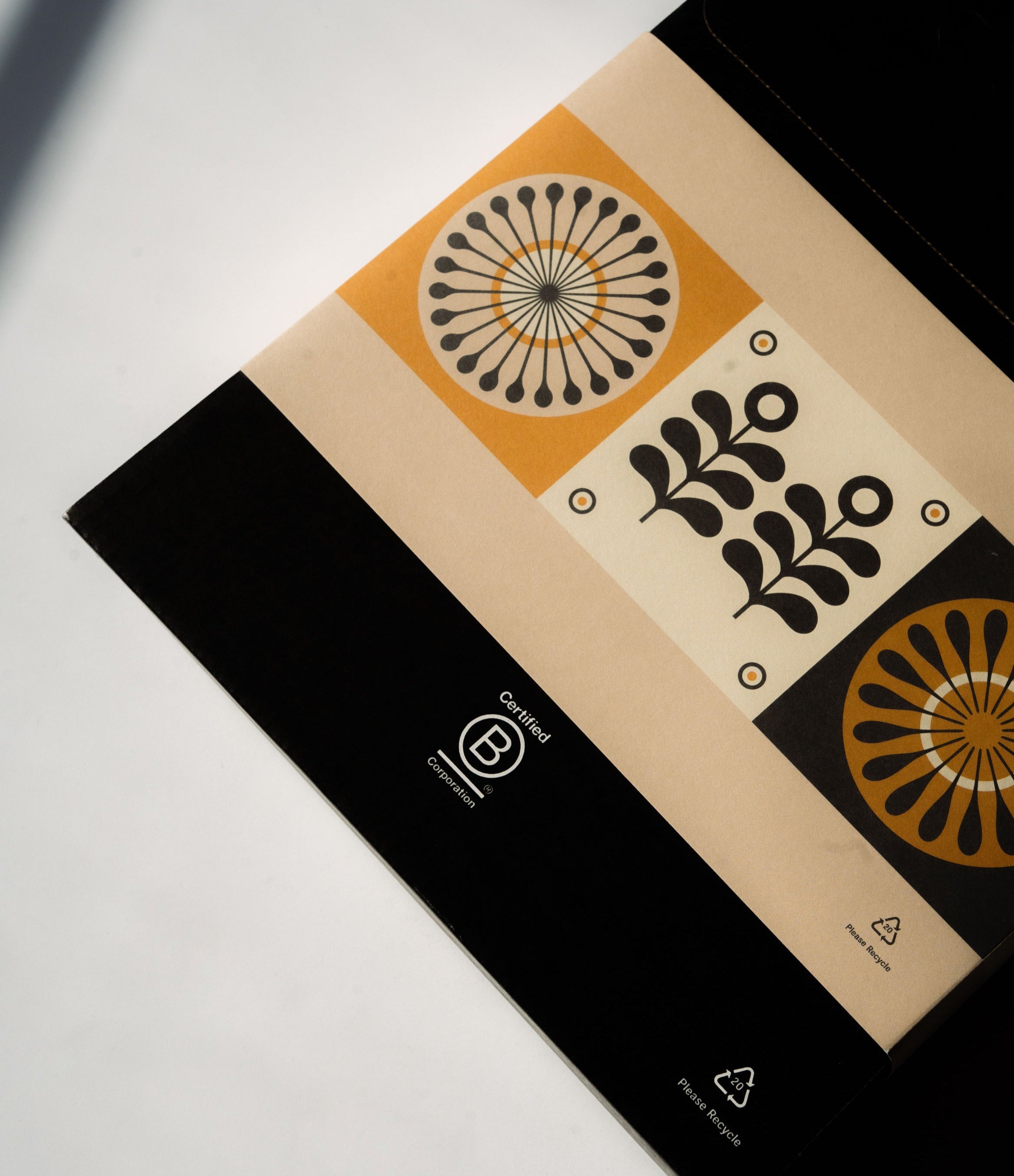
Mar 13, 2025
Women in Coffee: Meet Sarah Walker MSc
Meet Origin’s Sarah Walker; whose work focuses on driving sustainability and reducing environmental impact. Read more











